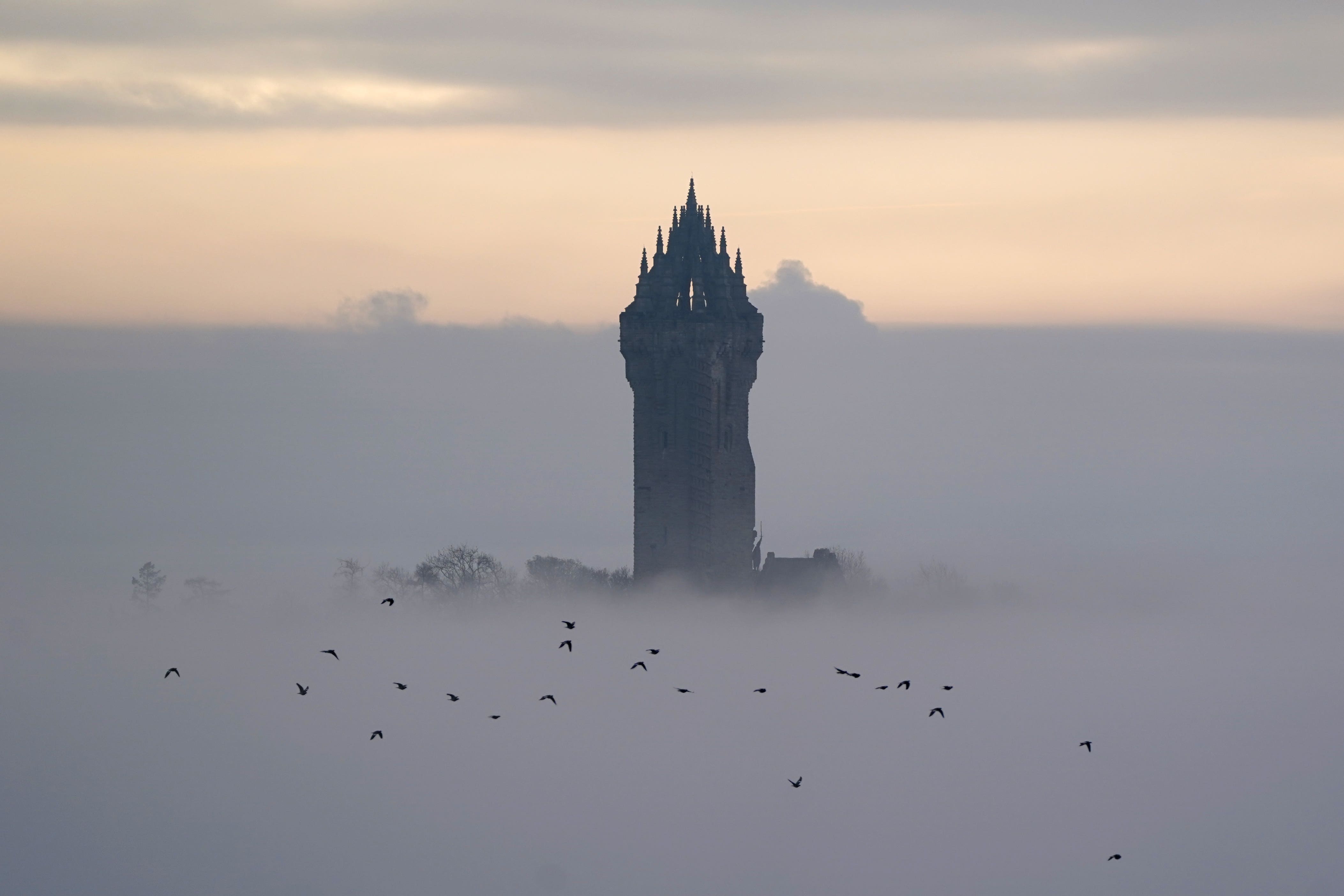Ice cold arctic air set to move across UK on Tuesday to begin wintry spell
Frost will hit areas from Tuesday evening, with snow predicted in parts of Scotland, forecasters say.

Your support helps us to tell the story
From reproductive rights to climate change to Big Tech, The Independent is on the ground when the story is developing. Whether it's investigating the financials of Elon Musk's pro-Trump PAC or producing our latest documentary, 'The A Word', which shines a light on the American women fighting for reproductive rights, we know how important it is to parse out the facts from the messaging.
At such a critical moment in US history, we need reporters on the ground. Your donation allows us to keep sending journalists to speak to both sides of the story.
The Independent is trusted by Americans across the entire political spectrum. And unlike many other quality news outlets, we choose not to lock Americans out of our reporting and analysis with paywalls. We believe quality journalism should be available to everyone, paid for by those who can afford it.
Your support makes all the difference.Cold arctic air is set to move across the UK, triggering a chilly spell when overnight temperatures are predicted to plunge to as low as minus 10C.
Frost will hit areas from Tuesday evening, with snow predicted in parts of Scotland, forecasters say.
It comes as the Met Office and UK Health Security Agency (UKHSA) issued a severe cold weather alert for England and warned the plummeting temperatures could increase health risks to vulnerable people and disrupt deliveries.
Met Office forecaster Dan Stroud told the PA news agency: “We’ve got a spell of showers feeding into North Sea coastal areas during Tuesday. They will turn increasingly wintry across parts of northern Scotland, with accumulations on higher ground.
“Elsewhere, while sunny, there will be a cold feel, with temperatures just below average.
“But with some strong winds it’s going to feel a lot cooler than it actually is.
“Into Tuesday night an organised band of showers will sink south, (with) that wind changing direction and coming in from the north, turning it colder with an increasing risk of some frost, mainly in central and western areas.
“Once that wind rears around to the north, we’re going to pull in that colder arctic air, so the story will be about cold and frost.”
Mr Stroud said day temperatures will range between 4-6C in the north, reaching highs of 8C in the south, while it will drop to as low as -6C overnight.
It comes as a level three – or amber – cold weather alert was issued on Monday morning and warns of severe conditions in England between 6pm on Wednesday and 9am on Monday December 12.
The alert requires social and healthcare services to take action to protect high-risk groups.
Temperatures are expected to turn colder across much of the UK late on Wednesday and through Thursday as air from the Arctic spreads south across the country.
Mr Stroud said: “Into Wednesday, (there will be) frequent showers across north Scotland, some of those locally heavy, with snow away from the coast. Some accumulations are possible.
“It will start to feel very cold, with wintry showers moving in to parts of Northern Ireland and eastern England.”
Met Office deputy chief meteorologist Rebekah Sherwin added: “We can expect to see some snow and wintry showers further south as the week progresses, particularly in coastal areas or over higher ground.
“There will be widespread frosts with temperatures falling to as low as minus 10C overnight in isolated spots by the end of the week.”
Downing Street on Monday said it was confident the UK has sufficient energy supplies to get through the cold snap.
Dr Agostinho Sousa, consultant in public health medicine at the UK Health Security Agency (UKHSA), said older people and those with heart or lung conditions are particularly at risk from the cold weather, adding: “If you have a pre-existing medical condition, you should heat your home to a temperature that is comfortable for you.
“In rooms you mostly use, such as the living room or bedroom, try to heat them to at least 18C if you can. Keep your bedroom windows closed at night. Wearing several layers of clothing will keep you warmer than one thicker layer.”
The RAC has advised motorists to check their vehicles are “winter ready”, with properly inflated tyres that have good tread.
Spokesperson Rod Dennis said: “With temperatures plummeting this week, many drivers might be taken aback by the cold after an exceptionally mild autumn.
“Drivers with older batteries in their cars might also wish to give their vehicle a 20-minute drive before colder conditions arrive to ensure the battery can cope with sub-zero temperatures.”
The Met Office’s cold weather alert system operates in England from November 1 to March 31 in association with the UKHSA.
The system has five levels of response based on cold weather thresholds designed to trigger an alert when severe cold weather is likely to significantly affect people’s health.